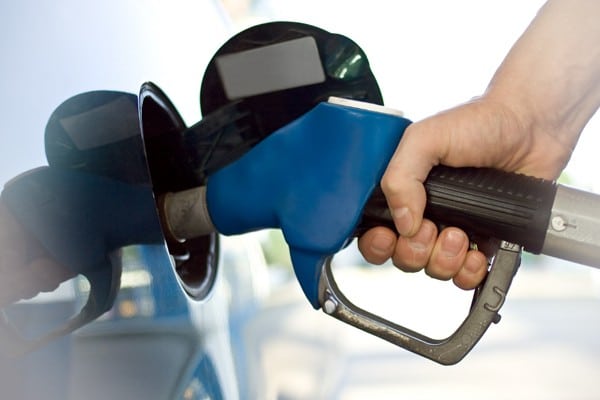

Tracking fuel consumption across your company fleet accurately is paramount for optimizing operational efficiency and reducing expenses. Imagine having a crystal ball that reveals exactly where and how your fuel is being used; wouldn’t that be incredibly valuable? This comprehensive guide will equip you with the knowledge and strategies to accurately track fuel consumption, identify areas for improvement, and implement solutions to minimize your fuel costs. We will explore various tracking methods, highlight potential challenges, and provide concrete solutions based on data and real-world examples. The structure of this article will cover the importance of accurate tracking, various tracking methodologies, and strategies for continuous improvement, along with real-world examples and actionable tips.
Understanding the Importance of Accurate Fuel Consumption Tracking
Why Accurate Tracking Matters
Precise tracking of fuel consumption is critical for fleet managers, enabling them to identify inefficiencies and areas for improvement. Knowing the exact fuel consumption of each vehicle allows for informed decisions regarding maintenance schedules, driver training, and operational strategies. This data-driven approach is essential to reducing unnecessary costs and optimizing your overall fleet performance. Companies that fail to implement such measures may find themselves missing out on significant cost savings. For instance, a small company that only tracks its overall fuel consumption per month will not be able to identify the specifics of driver behaviors that affect fuel consumption. This could result in not getting full efficiency of their fuel expenditures.
Identifying Areas for Optimization
Accurate tracking isn’t just about knowing the total amount of fuel consumed; it’s about drilling down to understand the specifics. Identifying areas such as unnecessary idling time, aggressive driving styles, and route inefficiencies becomes possible with precise data. This in-depth understanding allows for targeted interventions, whether it’s modifying routes, providing driver training, or implementing preventative maintenance protocols. Consider a study case where a fleet operator noticed a significant spike in fuel consumption during rush hour. By tracking the route taken by drivers during this time, it was found that drivers were taking longer, less optimal routes. Modifying these routes led to a 15% reduction in fuel consumption during that specific time period.
Implementing Fuel Consumption Tracking Systems
Choosing the Right Tracking Technology
Various technological tools can be employed to track fuel consumption effectively. GPS tracking devices, coupled with onboard diagnostics, provide a comprehensive overview of vehicle performance, including speed, location, and driving habits. Telematics systems are also crucial in capturing fuel consumption data, integrating it with other essential fleet data, such as maintenance schedules and driver behavior. Leveraging such a system will allow you to make real-time changes to ensure that your company is getting the most value from its fuel expenditures. Companies that don’t track data may run into the risk of being left behind by their competitors.
Integrating Tracking with Existing Systems
Successful implementation hinges on the integration of the tracking system with existing fleet management systems. This seamless integration ensures that fuel consumption data flows seamlessly into reports, dashboards, and analyses. This integrated approach will provide comprehensive insights across all aspects of your fleet’s operation, from fuel costs to maintenance needs, improving visibility into overall performance.
Consider the example of a company that utilizes a centralized dispatch system. Integrating their fuel consumption tracking system into that system would provide insight into how the dispatching of drivers is affecting overall fuel efficiency. This real-time data integration allows for informed adjustments and strategies to further optimize fuel expenditures.
Related Post : High Fuel Costs Draining Your Business Profits? Efficiency Strategies.
Analyzing Fuel Consumption Data for Actionable Insights
Fuel Consumption Reports and Dashboards
Creating personalized dashboards and reports is crucial to extracting meaningful insights. Dashboards should visually represent key metrics such as average fuel consumption per vehicle, driver, and route. This visualization helps in identifying outliers and patterns. For example, if one driver consistently has higher fuel consumption, it signals the need for driver training or vehicle maintenance. Using real-time data will allow companies to make changes to their systems in real-time, ensuring that they get the most out of their fuel expenditures.
Driving Habits and Route Optimization
Analyzing driver behavior data is invaluable. Identifying patterns in driving habits can help pinpoint areas for improvement, such as excessive speeding or aggressive braking, both of which contribute to increased fuel consumption. Similarly, route optimization can reveal opportunities for reducing travel time and fuel costs. Consider a trucking company that analyzed its delivery routes and identified several inefficient routes. By re-optimizing the routes, they were able to reduce fuel consumption by 10% within the first quarter.
Maintaining and Improving Fuel Efficiency
Driver Training and Education
Effective driver training plays a crucial role in improving fuel efficiency. Educating drivers on best practices, such as maintaining a consistent speed, avoiding aggressive driving, and proper vehicle maintenance, leads to measurable improvements in fuel economy. This will contribute to lower fuel costs over the long term.
Fleet Vehicle Maintenance and Condition
Regular vehicle maintenance is vital. Ensuring that tires are properly inflated, engines are tuned, and other systems are functioning optimally contributes to better fuel economy. Identifying problems early will prevent them from affecting fuel efficiency in the future. Consider a trucking company that made a significant investment in maintaining its fleet. They found that the initial investment in maintaining their fleet vehicles resulted in better fuel efficiency, leading to significant cost reductions within the first year.
Fuel Efficiency Strategies
Consider alternative fuel sources or technologies if they align with your company’s budget and environmental goals. Implementing smart technologies and systems to streamline your operational processes will help in optimizing your fuel expenditures.
Continuous Monitoring and Improvement
Regular Data Analysis
Regular review of fuel consumption data and identification of patterns is necessary for long-term optimization. Tracking key metrics such as fuel consumption per mile, cost per gallon, and fuel efficiency trends helps companies adapt strategies based on insights.
Adapting to Changing Conditions
Fuel prices and market conditions change constantly. Fleet management systems must adapt and adjust accordingly to ensure that fuel efficiency strategies remain effective. Consider incorporating fuel price data and fluctuations into your analysis to make informed purchasing decisions regarding fuel.
Employee Engagement
Employee engagement in the optimization process can foster a culture of efficiency. Encourage participation and knowledge sharing among drivers and technicians, promoting a collaborative approach to improve fuel efficiency.
Case Study: XYZ Trucking Company
Fuel Consumption Reduction Through Data Analysis
XYZ Trucking Company implemented a comprehensive fleet tracking system with real-time fuel monitoring capabilities. The results were impressive. Data-driven insights revealed areas for improvement in driver behavior and route optimization.
Improved Fuel Efficiency
The system helped identify drivers with higher fuel consumption, leading to targeted training programs. Route adjustments resulted in significant improvements in fuel efficiency. The company was able to lower its fuel costs by a notable amount and was able to sustain that success over time.
In conclusion, accurately tracking fuel consumption across your company fleet is crucial for optimizing operational efficiency and reducing costs. Implementing a robust system, combined with driver training and proper maintenance, will yield significant returns. By following the steps outlined in this article, you can gain actionable insights into your fleet performance and make data-driven decisions to improve your bottom line. Ready to take control of your fuel costs? Contact us today for a free consultation!